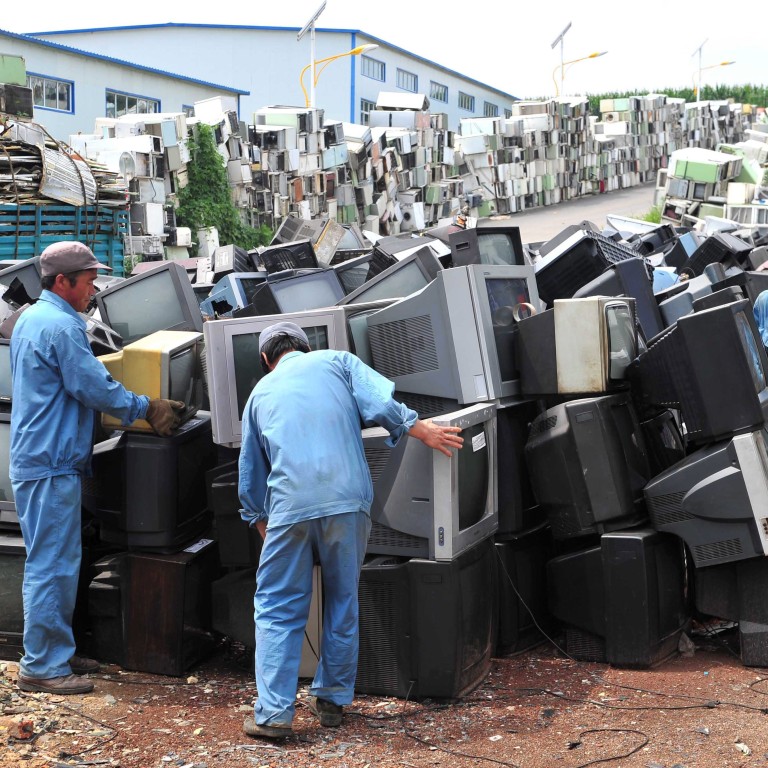
Emerging nations dumping more e-waste than West, report says
China and other emerging economies have overtaken Western nations in dumping electronic goods, from televisions to mobile phones, and will lead a projected 33 per cent surge in the amount of waste from 2012 to 2017, a UN-backed alliance said.
China and other emerging economies have overtaken Western nations in dumping electronic goods, from televisions to mobile phones, and will lead a projected 33 per cent surge in the amount of waste from 2012 to 2017, a UN-backed alliance said yesterday.
The report, the first to map electronic waste by country to promote recycling and safer disposal, shows how the rise of developing nations is transforming the world economy even in terms of pollution.
"The e-waste problem requires attention globally," said Ruediger Kuehr of the UN University and executive secretary of the Solving the E-Waste Problem initiative. StEP is run by United Nations agencies, governments, NGOs and scientists.
The weight of electronic goods discarded every year worldwide would rise to 65.4 million tonnes by 2017 from 48.9 million tonnes last year, with most of the growth in developing nations, StEP said.
By 2017, the annual piles of old washing machines, computers, refrigerators, toys and other goods with an electric cord or battery would weigh as much as 11 Great Pyramids of Giza, it said.
Some waste from rich countries ends up in developing nations, where many people work in hazardous conditions for low wages dismantling it.
Waste from emerging countries, as well as Russia and other former Soviet bloc nations, overtook totals from Western nations, Japan and Australia around 2012, StEP data showed.
Last year, the West produced 23.5 million tonnes of waste and all others 25.4 million tonnes, a shift from the previous estimates for 2007 when the West accounted for most, StEP said.
By 2017, trash from the West was expected to rise to 28.6 million tonnes, far less than the 36.7 million tonnes from other countries, a side effect of the economic rise of emerging nations such as India, Brazil and South Africa.
"Although there is ample information about the negative environmental and health impacts of primitive e-waste recycling methods, the lack of comprehensive data has made it hard to grasp the full magnitude of the problem," Kuehr said in the StEP report.
Consumers could help with better recycling, especially at Christmas, he said.
Waste can be valuable if recycled. One study estimated that a million mobile phones could yield 24kg of gold, 250kg of silver, 9kg of palladium and more than nine tonnes of copper.
Yesterday's report also showed that the average person on the planet produced 7kg of electronic waste every year. Americans were among the highest with 29.8kg each.
Separately, US-based experts said about two-thirds of US electronics waste was collected for reuse or recycling and only 8.5 per cent of the collected units were exported, some to China. Smaller items often went to Asia.
Jeremy Gregory, of the Massachusetts Institute of Technology and a co-author of the report, said it was hard to track trade because the waste is often merely described as "mixed metals" on import documents.
StEP urged nations to adopt clearer trade descriptions.

